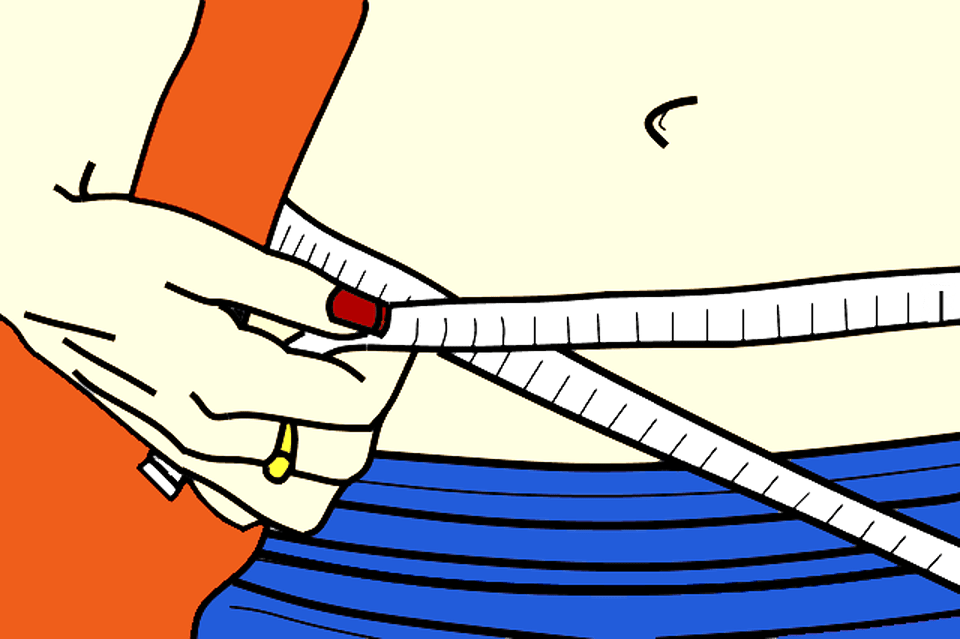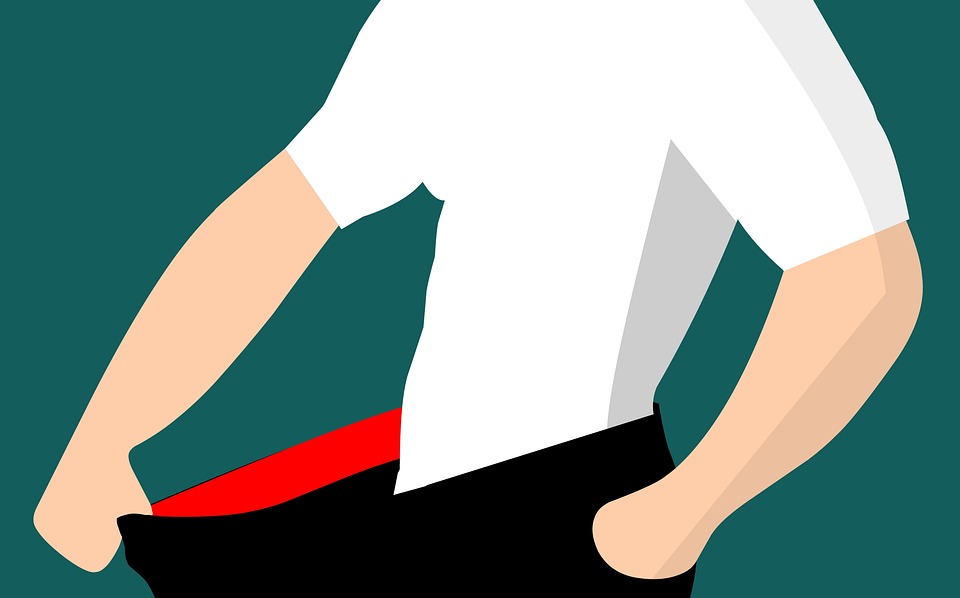
You did it! You altered your dietary intake and the results showed on the scale. You lost weight.
Eventually, you recognized that adhering to a rigorous dietary plan such as keto or paleo wasn’t the right choice for you, or maybe it seemed overwhelming to promise never to consume ice cream anymore. In conclusion, the method you were utilizing proved to be ineffective in the long run, leading you to revert back to your old eating habits. You gained back the weight.
Weight loss isn’t everyone’s goal, nor should it be. For the individuals hoping to reduce their pants size, the process of yo-yo dieting can be extremely irritating.
The encouraging thing is that, based on the research, it may not all be your responsibility for gaining the weight back.
Your body is attempting to attain balance, where it is at a weight that feels natural and familiar. Fortunately, you can break this frustrating cycle and eventually achieve your desired weight. In the end, that’s what resilience is: returning to form in the midst of difficulty. In Everyday Health’s United States of Resilience survey from 2020, it was discovered that amongst individuals labeled as resilient, 71 percent applied an “Let’s take steps to fix it” viewpoint rather than just accepting the present and having a “It is what it is” point of view.
Gaining a greater comprehension of the reasons behind frequent changes in weight is the first step in overcoming the issue.
What Is Yo-Yo Dieting — and How Common Is It, Really?
The practice of continually losing weight and then regaining it is known in the medical field as “weight cycling,” where individuals, in reaction to unintentional weight gain, go on a diet and once the desired outcome is reached the cycle begins again. Then you return to a regimen of eating to lose weight, and the scenario is repeated.
While fad diets market big guarantees, they conceal an unsavory information: They commonly do not develop for sustained modification. The study mentioned previously states that out of those who shed a significant quantity of body weight (measured as a minimum of 10 percent of their initial weight), 80 percent will regain the weight in a year.
The utilisation of the fluctuating pattern has been proven to be counter-effective, leading to a greater distance from the intended objective. For a March 2018 article in Preventive Medicine, researchers examined a sample of over 10,000 middle-aged women from the Australian Longitudinal Study of Women’s Health during a 12 year time span. Almost 40 percent said that they had weight cycled. Women who were classified as healthy or overweight and had a tendency to rapidly and intentionally lose 11 or more pounds at least three times had more weight gain compared to individuals who maintained more steady weight levels. Women who did not have obesity were more likely to have engaged in weight cycling and have resorted to unhealthy weight loss practices, such as taking laxatives, diuretics, and diet pills.
Is Yo-Yo Dieting Bad for Your Health? Here’s What the Research Suggests
There has been considerable discussion about the impacts on health from yo-yoing.
Many claim that even momentary victory in trying to lose weight is worth celebrating, and studies regarding the negative impacts of this are not clear-cut. An example is a study published in the journal Metabolism which looked into more than four hundred inactive and overweight post-menopausal women and revealed that those with a background of weight cycling carried more weight, and had worse metabolic health. The scientists observed that a lesser metabolic condition was a result of increased body mass index (BMI) or bigger body fat, instead of the fluctuating weight by itself. It is essential to keep trying to achieve weight loss goals in the future. Despite living with a genetic risk factor, these individuals were still able to gain from healthful lifestyle practices, shed pounds, and witness an upgrade in their well-being (one example being augmented insulin activity).
involving data from 6.7 million people, those who had the greatest amounts of variability in their blood pressure, glucose, and cholesterol numbers (which can be caused by weight swings), as well as in their BMI, had up to 2.3 times higher odds of death from any cause, compared with those who had the most even-keeled numbers. When looking at BMI specifically, those who had the greatest amount of variability had a 14 percent higher risk of having a heart attack or stroke. Note, though, that one limitation of this study was that the authors were not able to distinguish between people who lost weight intentionally and those who lost it unintentionally.
It is clear that the emotional stress of going through a rapid weight loss regimen can be very taxing on one’s mental health. According to the results of the Preventive Medicine study, ladies who go through weight cycling are at a heightened risk of showing signs of depression, with a 50 percent greater probability compared to those who do not. The investigators mentioned that they could not determine if the psychological issues were the origin of the added weight or if the pressure of slimming down was the source of the depressive symptoms.
Some Helpful Tips to Stop Yo-Yo Dieting Cycle
1. Follow the Science and Physiology of Weight Loss
Choosing the best way to drop pounds may be one of the most significant elements in ensuring your success in keeping your weight off and avoiding the cycle of weight gain and loss that can accompany yo-yo dieting.
It should be acknowledged that the body does not typically lose weight.
Our bodies are naturally inclined to put on weight with the intention of protecting us in the event of survival, and losing weight may provoke a warning signal to the body.
It is impossible to consume or burn an unlimited amount of calories, apart from situations like ketosis, where biochemical states take over. It is possible to shed pounds rapidly by drastically reducing the amount of calories consumed. You can decrease what you consume or engage in strenuous physical activity to achieve this.
We may set off a warning signal in the body if we decrease the calories below the Resting Metabolic Rate (RMR). Your Resting Metabolic Rate (RMR) is the number of calories your body needs to function properly and can be determined through a specialized test.
Even though a car stops running if it runs out of gasoline, your body needs energy to continue operating, even if you aren’t consuming enough calories. When presented with this problem, your body will go for breaking down muscle instead of fat.
This is a smart adaptation by your body. It is evident that you need to keep checking how much muscle and fat you are losing when trying to slim down; otherwise, you risk triggering an undesirable revived rise in weight.
While on a diet, your scale continues to drop. Nevertheless, as soon as you stop the diet, the amount of lean mass your body has to utilize in order to burn calories will no longer be the same.
2. Try to Be Realistic
A fantastic method of ending the cycle of gaining and losing weight is to choose an approach to weight management that splits up weight loss and upkeep into discrete sections.
It is not possible to keep the same eating pattern you adopted to shed pounds in the long term. It is necessary to switch up your approach as you return to your usual way of life. The maintenance plan must be achievable and achievable so you can commit to it. You’ve seen this scenario before, and so have we.
Many times, our customers are ex-dieters who have already tried out alternatives such as Nutrisystem and Jenny Craig. At first, they are able to achieve the weight loss they desire while consuming the pre-packaged meals that make up their diet. They relish the fact that they don’t have to put effort into selecting or preparing food while using the program. However, the plan keeps them from developing healthy lifestyle habits like menu planning, grocery shopping, food preparation, and understanding how to make healthful choices when dining out.
Once the supplies of food cease, so do their nutritional plans.
The individuals these customers work with experience an initial elation due to the weight loss accomplishments, but that joy begins to slide away as the pounds start to pile back on. They have no other methods or strategies except to revert to a diet in order to regain control of their weight. This is an explanation of the repeated cycle of weight loss that is associated with yo-yo dieting.
Choosing the ideal method for weight loss will assist you in losing those extra pounds and keeping them off permanently.
3. Believe You Can Do It!
Believe that you can do it.
You need to ask yourself this question:
Is it worth it to alter your eating habits, participate in physical activity, and make diet-related modifications to achieve better health?
Do you believe you will be better off after these adjustments are made?
All of us possess a bit of doubt inside, particularly when confronted by circumstances that can keep us from attaining our objectives.
Having a nutritionist or coach while attempting to lose weight can be beneficial in helping to remain focused and steer clear of any rapid weight fluctuations. It can also help to recognize the habits of self-sabotage or lack of confidence that prevent us from succeeding. This hesitancy to believe in ourselves may lead to ineptitude and, even worse, falling short of our accomplishments when we have already achieved it.
We can achieve any goal we desire, so long as we establish a course of action, gather resources, and focus on our capabilities to ultimately come out triumphant. Our goal should be to overcome our challenges instead of becoming discouraged by striving for an unrealistic and unhealthy version of ourselves.
4. Go for Something New
Make some little changes. It is usually simpler to start and keep doing them. You will find that even a seemingly minor tweak can result in considerable progress in your quest to slim down. Moreover, it can help you sustain your great results.
We all remember the tv show The Biggest Loser. Many contestants have been successful in reaching their weight loss goals by taking a break from their everyday routine.
The primary focus of these individuals was solely on reducing their caloric intake and dedicating at least four to six hours per day to physical activity. Such dietary regimes can lead to drastic weight reduction outcomes, however, these are not stable solutions.
When these individuals return to their everyday lives, they recognize that the drastic measures that enabled them to slim down are not sustainable.
Rather than making drastic changes, smaller adjustments such as planning meals in advance, engaging in physical activity on a regular basis, and consuming the equivalent of half your body weight in ounces of water per day could be beneficial. Here are some minor modifications that can be kept up with over time to promote long-term weight reduction.
5. Make a Mental Shift
Tiffany Wright, a renowned weight loss coach from Los Angeles who delves into the cognitive and behavioral elements that cause overeating, states that a substantial section of dieting does not entail altering the basic psychology of eating. The triggers in our day-to-day lives (like the fast food chain advertisement you see on your way home from a tough workday) make it so that not attaining your weight goals is not about the amount of self-discipline or the ability to honor a diet. Dr. Wright states that although one might be successful in dieting for a finite time period, it does not handle the root issues that cause weight gain initially. This is why reverting to one’s old behaviors is rarely a challenge.
6. Look Beyond the Scale
Weight isn’t everything. Are your labs normal? Are you sleeping okay? Exercising appropriately? Hultin states that although it can be simple to track improvement with the scale, there are other changes that can have a great influence on overall health which are not often taken into account.
Bottom Line
Embracing a new lifestyle that comes along with a maintenance plan is advantageous as it encourages making decisions that are beneficial to your health, but it doesn’t need to be followed strictly every successive day. This is a great advantage of the Ideal Protein lifestyle program.
You can have a 24-hour period where you disregard all laws or regulations, but it must end afterward. Instead of focusing on self-pity, which can result in an onslaught of negative activities, you should look ahead to having the ability to repair the consequences of any given day. You will be able to employ a healthy way of life to get yourself back in balance rather than having to follow a restrictive diet.
In order to avoid the downsides of yo-yo dieting, constructing a plan to address both weight loss and everyday life is essential.














